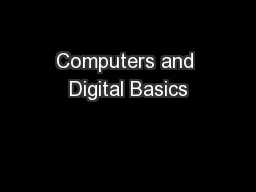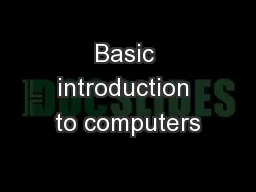PPT-Computers and Self
Author : sherrill-nordquist | Published Date : 2017-12-27
Social Implications of Computers Free Will vs Predestination Do people have free will An ancient question Greek mythology the Fates Clotho Lachesis Atropos
Presentation Embed Code
Download Presentation
Download Presentation The PPT/PDF document "Computers and Self" is the property of its rightful owner. Permission is granted to download and print the materials on this website for personal, non-commercial use only, and to display it on your personal computer provided you do not modify the materials and that you retain all copyright notices contained in the materials. By downloading content from our website, you accept the terms of this agreement.
Computers and Self: Transcript
Download Rules Of Document
"Computers and Self"The content belongs to its owner. You may download and print it for personal use, without modification, and keep all copyright notices. By downloading, you agree to these terms.
Related Documents














